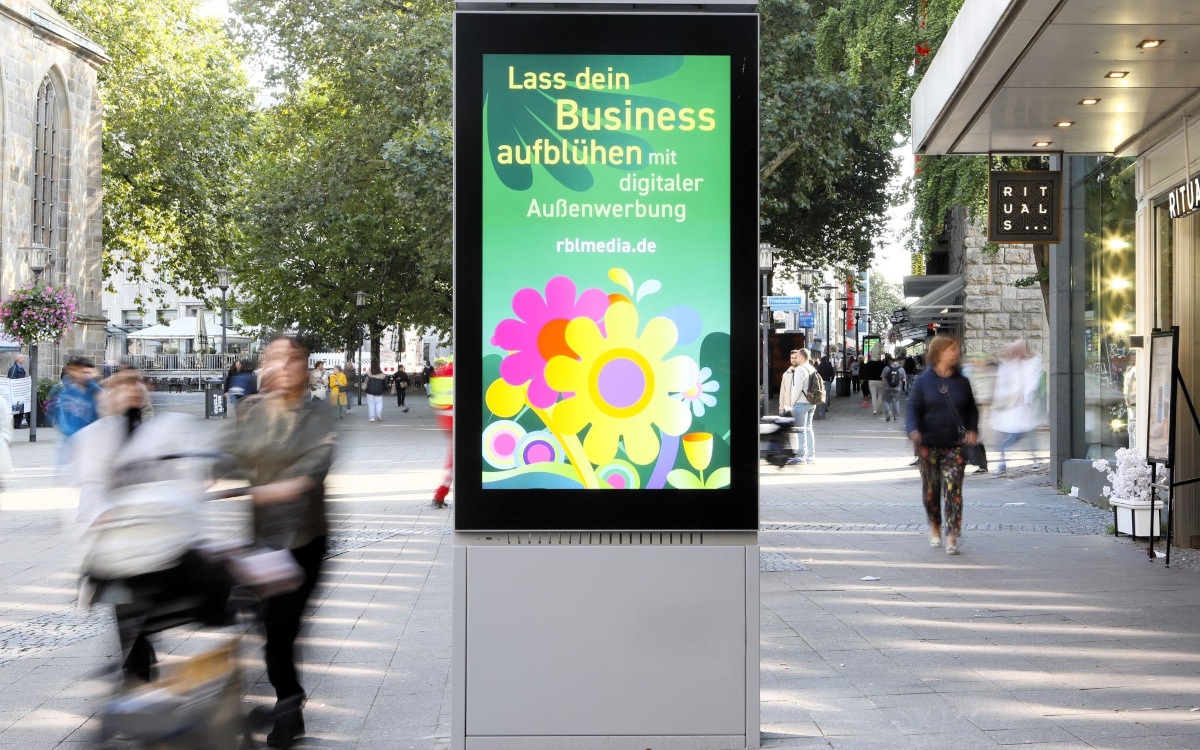The German out-of-home group Ströer is strengthening its market leader position: The company is acquiring RBL Media, the subsidiary of the street furniture manufacturer Epsilon, and securing contracts in six major German cities.

M&A: Ströer Acquires RBL Media
The Ströer Group is acquiring 100 percent of the shares in RBL Media GmbH, an outdoor advertising company based in Aachen. Through the acquisition, Ströer strengthens its position as the undisputed market leader in the German out-of-home market and secures important advertising concession contracts in cities such as Leipzig, Essen, Dortmund, Aachen, Münster, and Erfurt.
RBL Media, a subsidiary of the Belgian street furniture manufacturer Epsilon, has made a name in the OoH transit shelter segment in recent years. The most important advertising contracts in the company’s portfolio include around 900 transit shelters in Essen. RBL Media won the tender process recently after it had been in Ströer’s hands for almost a century. With the takeover, Ströer is now regaining the advertising rights to these spaces.
In total, RBL Media’s portfolio consists of an estimated 7,000 advertising media, including numerous digital spaces. The rollouts for some new contracts have not yet been completed – for example, 100 new DooH citylights may be added in Essen by the end of the year. On average, the contracts that RBL Media has concluded have remaining terms of around ten years.
“With the acquisition of RBL Media, we are tapping into considerable potential by further consolidating our outdoor advertising network in major cities in Germany and are consistently implementing our strategy of continuously and specifically expanding our high-reach digital outdoor advertising portfolio. This will enable us to further expand our position as the clear number 1 in the German outdoor advertising market and further increase the reach of our attractive digital outdoor advertising portfolio for our customers,” says Christian Schmalzl, Co-CEO of Ströer.
invidis comment
Since entering the market, the Belgian metal construction company disrupted the quasi-duopoly of Ströer and Wall (JC Decaux) in city out-of-home contracts. In Aachen, Leipzig, Münster and Essen, the bold Belgians snapped away decade old contracts held by Ströer and Wall.
Even though Ströer repeatedly downplayed RBL’s successes, it was obvious that the new market participant was seen as a serious competitor. The takeover that has now been completed is therefore only logical. In terms of antitrust law, takeovers are usually difficult in a market dominated by two large providers and many much smaller participants. But before the acquisition of RBL, Ströer secured approval of the antitrust authorities.

